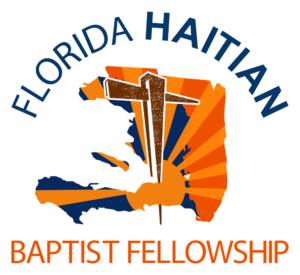Tri-Annual Ministry Action Plan


The FHBF’s operational plan is a ministry action plan (MAP) designed to be implemented through three distinct but inter-related phases. The MAP consists of a set of activities that are to be implement over a three year span. While connected, the phases can be implemented in parallel in relation to the availability of resources. The Fellowship’s yearly provisional budget is designed to support the activities stated in the MAP. The phases are as follow:
Phase One: Institutional Strengthening
Over the past 24 years of existence, the FHBF, previously known as Haitian State Fellowship has accomplished results worthy of cherishing and guarding. Nevertheless, as in any organization, progress must be a constant theme. It is in the spirit of this continuum that the FHBF longs to bring institutional change necessary for the sustainability and progress of the institution.
The Fellowship seeks to bring most needed institutional change in itself as well as in the lives of partnering institutions which look up to it for guidance. That effort include:
Strengthen the Florida Haitian Baptist Fellowship
- Restructure the Fellowship through the creation of a General Board of 12 representative members of regional fellowships throughout the State
- Assign the responsibility of leading the Fellowship as well as implementing its actions to an Executive Committee of five members from within the General Board.
- Prepare a yearly budget to highlight the Fellowship’s priorities
- Prepare the Fellowship’s operational plan namely its Ministry Action Plan for three years
- Prepare the Fellowship’s bylaws and Constitution as well as its procedures and policies
Strengthen Existing Fellowships (Dade, Broward, Palm Beach)
- Assist in strengthening existing local fellowships including Miami Haitian Baptist Association, Fellowship of Haitian Baptist Pastors in Broward, and Palm Beach through the following:
- Provide training on Church Growth and Leadership development to better equip pastors and churches in existing fellowships
- Establish a conflict management unit to address, upon invitation, any conflicting interest that may oppose churches or pastors with their congregants
- Provide necessary liaison and support to any issue faced by a local functional fellowship
- Assist in providing information leading to more Haitian pastors attending theological and biblical training through the Southern Baptist Seminaries where tuition is reduced for Southern Baptist associates.
Redesign CMBH’s Operation
The Confraternité Missionaire Baptiste d’Haïti (CMBH) has been, for many years, the most visible expression of the Florida Baptist Convention’s partnership with Haitian Baptist churches and pastors in Haiti. Through this relation, hundreds of Haitian pastors have received fine theological and biblical training through the New Orleans Baptist Theological Seminary. This is extraordinary result for the Kingdom.
While such efforts need to be applauded, the Fellowship hopes to see more done with less or getting more results with the same amount of resources. The Fellowship is seeking to redesign the operational structure of such entity where more can be done using native inputs while vowing for a more structured and mutually beneficial for all agencies involved be it local or international.
Phase Two: Implementing Four New Regional Fellowship
Currently, the only three existing and functional Haitian local fellowships are found in the FBC’s Southeast region which spans from the Treasure Coast to the Florida Keys. Such Fellowships include those in Miami-Dade, Broward, and Palm Beach counties.
All other regions, although some have limited Haitian population, have no formal Fellowships. The Central Florida region which includes Orlando has no Haitian Fellowship. The Southwest Florida region which includes Naples, Fort Myers, Immokalee, etc. has no functional Fellowship. It is known that this region has in the past a group of Haitian pastors who had the desire to develop into a fellowship but this dream never comes to pass.
The Florida Haitian Baptist Fellowship longs to establish, in collaboration of Haitian churches and pastors, a Fellowship in that region to encourage growth and development in the Baptist life. Other regions to establish fellowships include Tampa, Orlando, Jacksonville, and any potential region with a moderate presence of Haitian Baptist churches.
Phase Three: Exploring Implementation of Overseas Fellowship
Phase Three: Exploring Implementation of Overseas Fellowship
It is the goal of the FHBF to expand its reach through the US northern states and establish local fellowship. Once tested and successful, the goal of establishing outside Florida’s borders fellowships will be taken to certain Canadian Provinces, the Bahamas, and the Dominican Republic.
- Northern States Fellowships: It is reported that the most concentrated Haitian population in the U.S. are found in the states of Florida, New York, and Massachusetts with a fairly size in states such as Georgia and New Jersey. It is therefore worthwhile exploring the efforts to establish a fellowship or two in the states of New York and Georgia as a start.
- Canadian Provinces Fellowships: Just a the North American Mission Board and even the Florida Baptist Convention have converged some of their efforts and resources to reach lost souls in Canada, the FHBF could also seek to initiate a relationship to the many Haitian Baptist churches that are based in the Province of Quebec. If successful, the fellowship in Quebec may well lead to other provinces including Ontario and British Columbia where most Haitians reside.
- The Bahamas and the DR Fellowships: Unless some unseen and unexpected circumstances occurred, establishing the fellowships in the DR and the Bahamas should be the most viable endeavors of the FHBF. The presence of heavy Haitian populations is a given in both regions. The challenge could reside in the identification process of southern Baptist churches in the mix of so many evangelical churches that are bourgeoning due to the “missions” effect.
Brown, Kim. Measuring America: Your Guide to Caribbean Population Statistics. U.S. Department of Commerce – Economics and Statistics Administration – U.S. Census Bureau,

